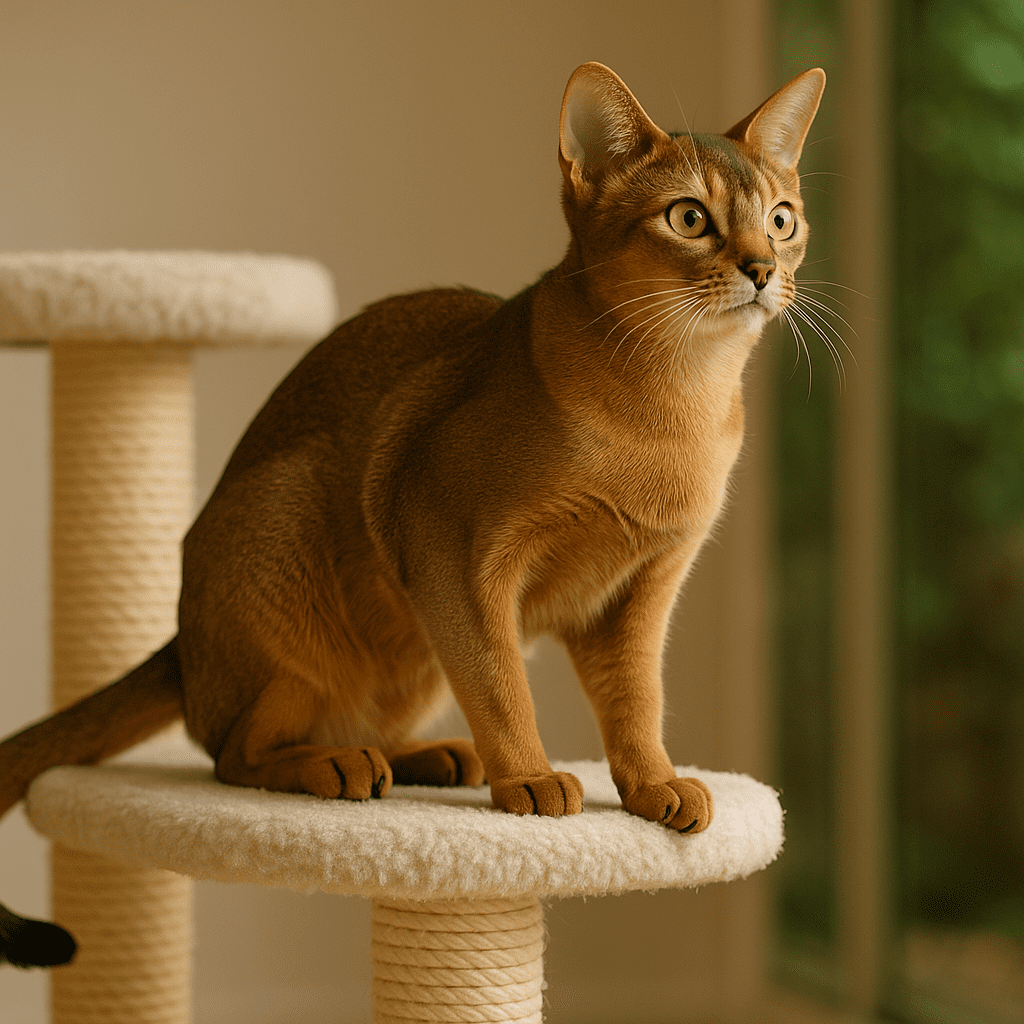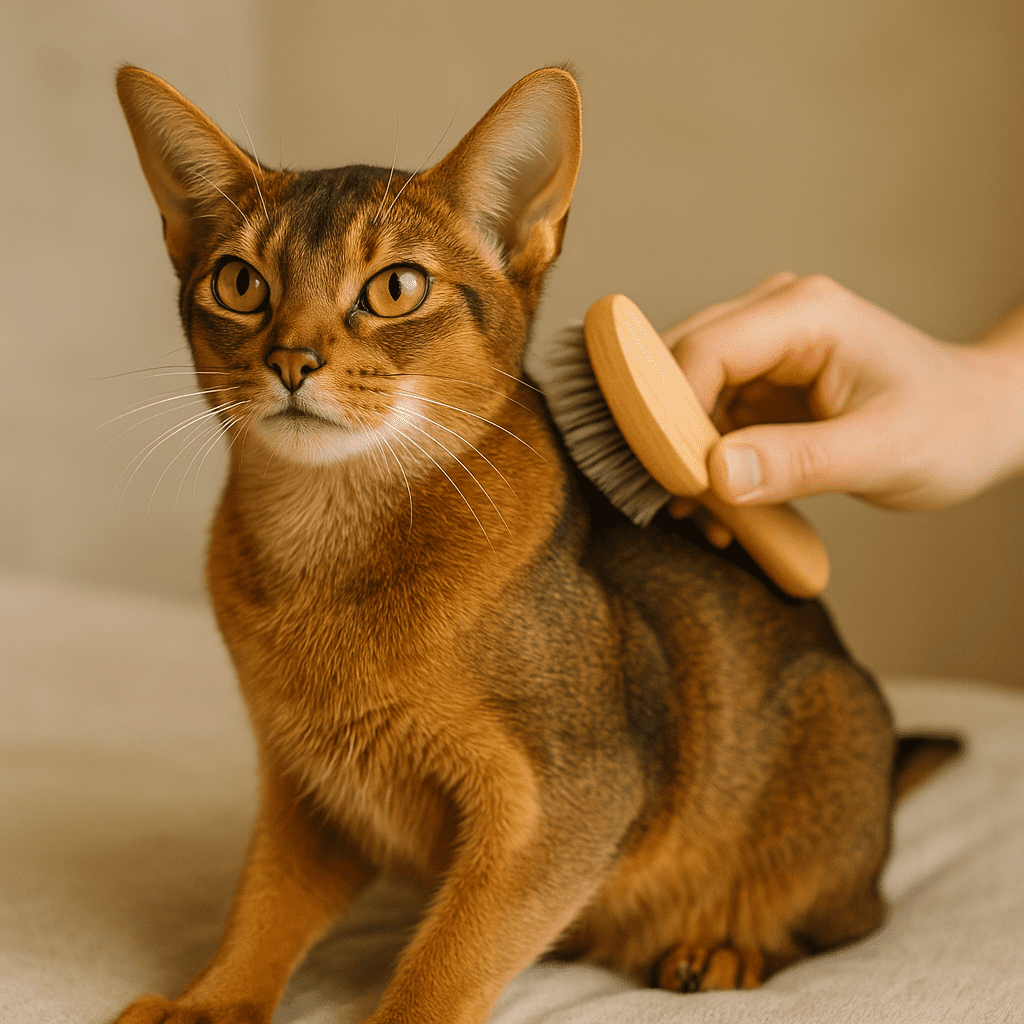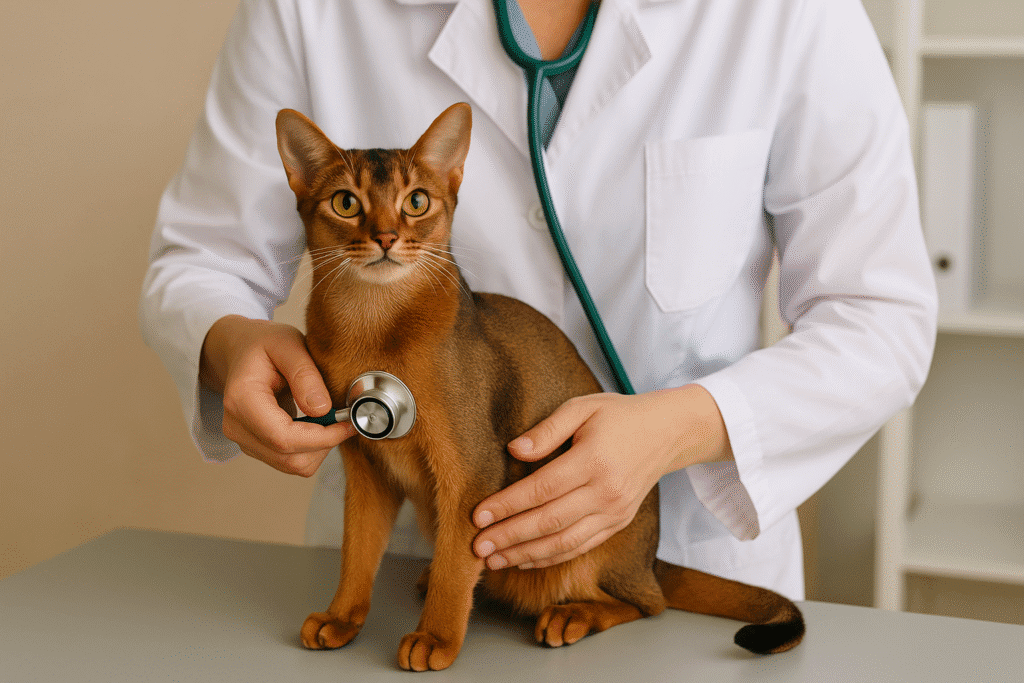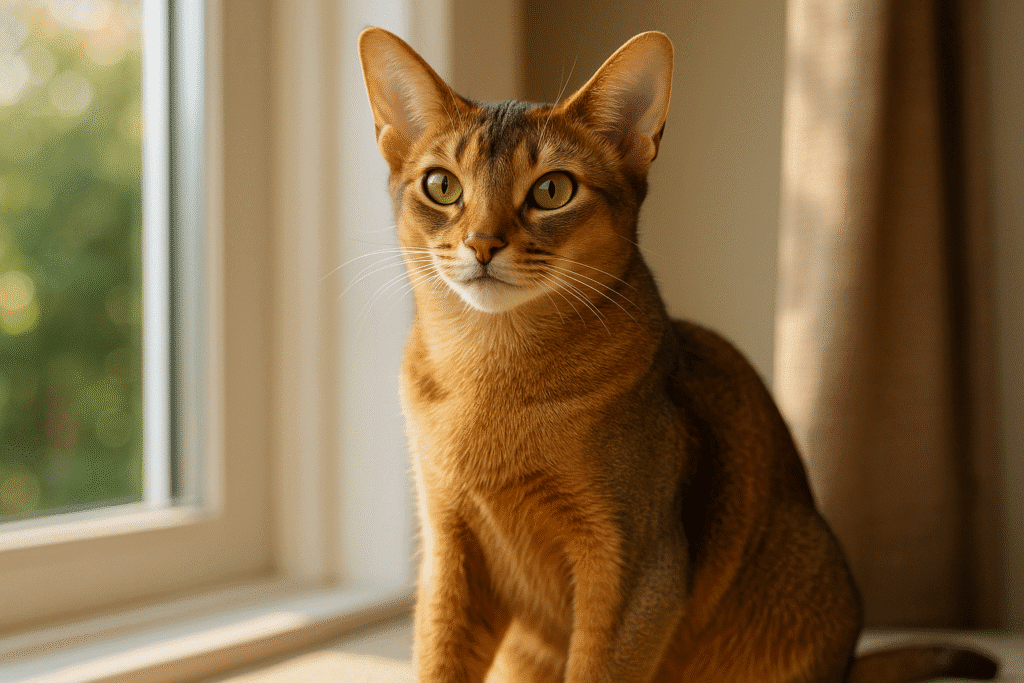This abyssinian cat breed guide covers everything from their playful and curious traits to grooming tips and health care. Discover why Abyssinians are among the most engaging cat breeds and learn how to provide the best environment for these adventurous companions.
Introduction
The Abyssinian is one of the oldest and most cherished cat breeds, famous for its ticked coat and adventurous personality. If you are considering adding this lively feline to your home, this abyssinian cat breed guide will provide insights into their history, temperament, grooming needs, and common health concerns.
(Outbound link: Learn more about Abyssinians from CFA: Abyssinian Cat Breed Profile.)

Playful Traits and Personality
Abyssinians are often described as the “clowns” of the cat world. They are extremely curious, energetic, and love climbing to high vantage points. These cats thrive in interactive households where playtime is a daily routine.
- Curious: They investigate every corner of the house.
- Affectionate: Form close bonds with their families.
- Intelligent: Quick learners that enjoy puzzle toys and interactive games.
(Internal link: Compare with another playful breed in our Bengal Cat Guide.)
Grooming Needs
Despite their luxurious coat, Abyssinians are relatively low-maintenance. Their short, fine hair requires weekly brushing to keep it sleek and to minimize shedding. Regular grooming also helps strengthen the bond between cat and owner.
Grooming Checklist
- Weekly brushing with a soft bristle brush
- Regular nail trimming
- Occasional ear cleaning
- Dental care to prevent periodontal disease
(Outbound link: For detailed feline grooming, visit International Cat Care: Grooming your cat.)

Diet and Nutrition
Like all cats, Abyssinians require a high-protein diet to maintain lean muscle and support their active lifestyle. Choose high-quality cat food that lists animal protein as the first ingredient.
- Provide fresh water at all times
- Consider a mix of wet and dry food for hydration
- Use puzzle feeders to stimulate their mind
Common Health Issues
While generally healthy, Abyssinians are prone to certain hereditary conditions. Responsible breeders test for these issues, but awareness is key for owners.
Health Challenges
- Gingivitis and dental disease
- Progressive Retinal Atrophy (PRA): Can lead to vision loss
- Renal amyloidosis: Affects kidney function
- Hyperthyroidism: More common in older cats
(Internal link: Learn more in our Pet Dental Care Guide.)
Training and Enrichment
Abyssinians thrive on mental stimulation. Training them to perform tricks or walk on a harness is often successful. They enjoy interactive play, especially toys that mimic prey movement.
(Internal link: See socialization tips in our Puppy Socialization Guide—many principles apply to cats too.)
Living with an Abyssinian
Living with an Abyssinian means embracing their playful spirit. They may climb shelves, follow you from room to room, and demand interactive play sessions. They do best in homes where they receive plenty of attention.

Frequently Asked Questions (FAQ)
- Are Abyssinians good with children?
Yes, they are active and playful, making them great companions for children. - Do Abyssinians require a lot of grooming?
No, a weekly brushing is usually enough to maintain their coat. - What health problems are Abyssinians prone to?
They may develop dental disease, PRA, or kidney issues. - Do Abyssinians get along with other pets?
Yes, they are sociable and adapt well to multi-pet households. - How long do Abyssinians live?
On average, 12–15 years, with some reaching 18 years when well cared for.
Conclusion
This abyssinian cat breed guide highlights their playful traits, minimal grooming needs, and health considerations. If you’re seeking an energetic, intelligent, and affectionate feline, the Abyssinian may be the perfect choice for your household.
Call to Action
Looking for more breed insights? Explore our Cat Breeds collection here.

